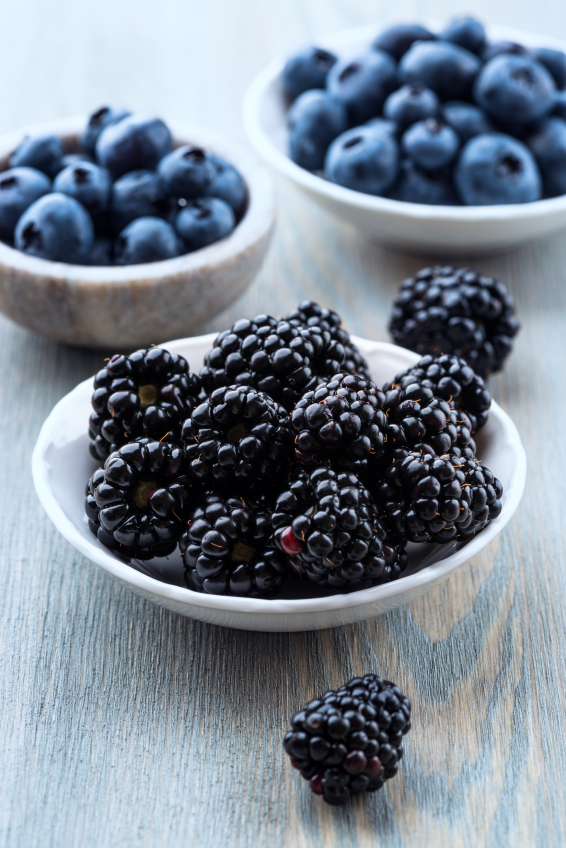Have you read the labels on the food packaging in your pantry and fridge? Did you find anything surprising, or confusing? Many times the labels can deceive, so I thought we’d walk through the definitions of many common terms found on the outside of the package.

This list isn’t meant to frustrate or overwhelm. Remember, we need to take things one step at a time. But as you’re trying to make changes, it’s a good idea to educate yourself so you can avoid buying things with “healthy-looking” wording on the label, but without the real benefits you want.
Natural
Currently regulations regarding the word “natural” apply only to meat and poultry products. “Natural” means the meat or poultry contains no artificial ingredients or added coloring and is only minimally processed. Other than meat and poultry, there are no regulations on the word “natural” and most food producers add this word to their label merely to increase sales. If a label says “Natural Orange Flavor!” this doesn’t mean the flavoring was made from oranges. It only means the flavoring wasn’t made from something man-made. It may actually be made of corn or soy. “Natural” is virtually meaningless unless it applies to meat or poultry products.
Organic
If a label says “organic,” it doesn’t necessarily mean all the ingredients are organic. The only way to buy a product that is one hundred percent organic is to find one that’s clearly labeled “100% organic.”                       
Certified Organic
Today, “Certified Organic” means the food was produced without synthetic fertilizers, pesticides, hormones, antibiotics, food additives, is not genetically modified, and has not been irradiated – which often destroys healthy nutrients. (This definition will of course change over the coming years.) Farmers and food producers are allowed to use fertilizers and pesticides from natural sources. Organic meat and poultry may be fed only organic feed (without any animal by-products) and are not allowed to be administered any type of hormone or antibiotic. The certification is only as good as the organization behind it, so you may want to become familiar with the people who research, inspect, and monitor these foods.
Free Range
“Free Range” simply means the animals are allowed access to the outdoors for a specified period of time – in some cases only five minutes. An animal may choose to remain indoors, but they have the freedom to go outside and have access to the sunlight. If you are looking for animals that were truly raised outdoors, look for the label “Pastured.”
Pasture-Raised
“Pasture-Raised” means the animal was given continuous access to pasture throughout their life cycle. It’s best to call the farm to find out if other feed, such as grain, was given to the animal.This label does not always mean the animal was raised without antibiotics or hormones.
100% Vegetarian Diet
This means the animal was given a purely vegetarian diet which usually consists of corn and/or soy. If it doesn’t say 100%, there’s no guarantee the animals were fed a full vegetarian diet. Please remember that the natural diet for chickens and turkeys, for example, includes insects, worms, etc.
Grain Fed
An animal was given grains as feed. This does not mean they were always fed grain as they could have been supplemented with animal by-products. (Keep in mind that cows and lambs are herbivores and naturally eat grasses and not dry grains or legumes.)
No Hormones Administered
This label means no hormones were given during the life of the animal. By law in America, poultry and hogs cannot receive hormones, so this label leads a consumer to believe the company has done something extra, when in reality, they aren’t allowed to give hormones in the first place. Please remember that even though a product says “No hormones,” the animals may not have received any type of special diet. This label also doesn’t guarantee animals raised without antibiotics.
rBST-Free
Many dairy cows are injected with rBST, also known as rBGH (recombinant bovine growth hormone), a genetically engineered growth hormone used to artificially increase milk production. As noted by leading organizations, including the National Institutes of Health and the American Cancer Society, more study is needed to determine whether it’s completely safe for human consumption. If a label says “rBST-free” this means the cow was not injected with growth hormones. All organic milk is rBST-free.
Genetically Modified Foods
Genetically modified foods are derived from plants or animals with DNA modified through genetic engineering. Genetically modified (GM) foods are allowed in the United States in the following foods and feed supply: alfalfa, canola, chicory, corn, cotton, flax, papaya, potato, rice, soybean, squash, sugar beet, and tomatoes. I encourage you to look more deeply into the effects of these foods, especially since there has been no long-term testing on their effect on human health. Unfortunately, in America, GM products aren’t labeled, so the best way to avoid them is to buy certified organic foods.
Irradiation
Irradiation is a process through which ionizing radiation in the form of gamma rays, x-rays, or electrons generated from machines are used to kill bacteria in food. Irradiation is now used for most non-organic produce, meat, eggs, and spices. Irradiation, however, destroys many of the vitamins in foods and, according to The Center for Food Safety, also doubles the amount of trans-fat in beef, which increases the risk of coronary heart disease. This process began as a solution to unsanitary practices on industrial farms. Irradiation also dramatically increases the shelf life of products. In America, irradiated food is only labeled if it’s “materially changed.” Some companies have proposed labeling irradiated foods as “pasteurized” – a completely different process, but a term that’s easier for consumers to accept. If you wish to stay away from irradiated foods, it’s best to buy organic.
Additives and Preservatives
On this site, we only use ingredients without additives or preservatives, including artificial coloring additives.
For Further Reading:
Easy Ways to Cut Back on Processed Foods
What’s Wrong with Food Irradiation
What Do Food Labels Really Mean?
The USDA Food Labeling Facts Sheet
The True Food Shopper’s Guide to Avoiding GMOs
The USDA Guide to Organic Labels
Clean Beef or Dirty Irradiated Beef? A Veterinarian’s Perspective





17 Comments